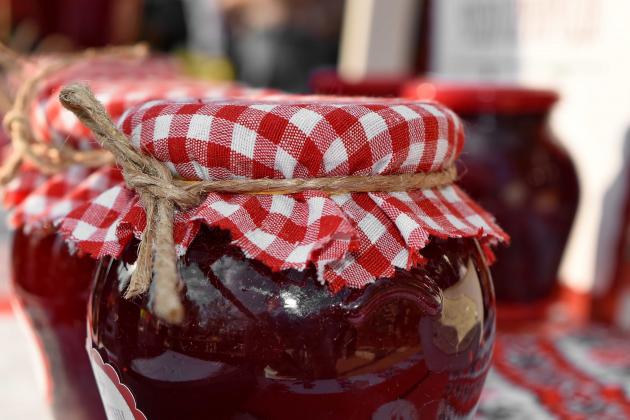Florida’s Cottage Food Law allows you to make certain foods in your home kitchen to sell without registering your kitchen as a food facility or obtaining food permits. This makes a cottage food business one of the easiest types of food businesses to start. The following can be made and sold under the Cottage Food Law:
· Bread, cake, pastries, fruit pie, cookies (except those requiring refrigeration, or those with cheese, cream cheese, real butter icing).
· Candy, confections.
· Honey (only if you harvest it yourself as a beekeeper).
· Jams, jellies, preserves made from high acid-fruits only.
· Dry herbs, coffee beans.
· Seasonings and mixtures.
· Homemade pasta.
· Cereal, trail mix, granola.
· Flours, dry baking mixes.
· Coated or uncoated nuts.
· Nut butters (almond, peanut, etc.).
· Vinegar, flavored vinegar.
· Popcorn, popcorn balls.
A cottage food business is allowed to make up to $50,000 in cottage food sales per year. All cottage foods must be stored at your home and all sales must be made directly to customers. Sales to restaurants, groceries or other retail stores, by mail or on consignment through other stores or vendors are not allowed under the Cottage Food Law. Cottage Foods must be labeled according to the simple requirements of the Cottage Food Law.
First steps
Making good food and selling it is the easy part of operating a food business. Making a profit with your food business will require some planning.
Calculate the cost to produce each product that you plan to sell; remember to include an hourly cost for your labor. Then you can determine profitable pricing for each product.
Work with local resources to develop your business idea and write up a plan. Seminars, individual consultations, and worksheets are available through Small Business Development Centers, UF IFAS Extension offices, or SCORE.
Launch successfully
If you want other people to take your business seriously, then take your business seriously. Establish your business legally from the beginning so you can qualify for funding and expand to larger markets more easily in the future. Decide what business structure you want to operate under, then register your business with the state at SunBiz.org. Apply for local county and city business tax receipts.
Small business owners are often responsible for managing all aspects of their businesses themselves, but you don’t have to be an expert at everything or do all the work yourself. You know your products, but maybe you could use some help with graphic design, Internet marketing, or accounting, for example.
A few things you can’t do without: A website (a Facebook page isn’t enough), a way to accept credit card payments, software for record keeping (accounting, managing client orders, etc.).
Manage risk in your business. Select your business partners carefully, have written contracts for any services you obtain or large orders you take, obtain food safety certifications and carry liability insurance.
Other types of food businesses
What if you want to sell other non-cottage foods? What if you want to sell your products to retail stores? Regulations for making or bottling other types of foods or doing wholesale sales requires the use of a permitted facility outside of your home, food permits, food safety certifications, and other requirements specific to certain products. Understand the requirements before investing in a more complex food business.
Learn more about cottage foods: https://tinyurl.com/CottageFoodLaw. If you need help getting started with your food business, contact Jessica Sullivan at UF IFAS Extension: sullivan@ufl.edu , 321-697-3000.




